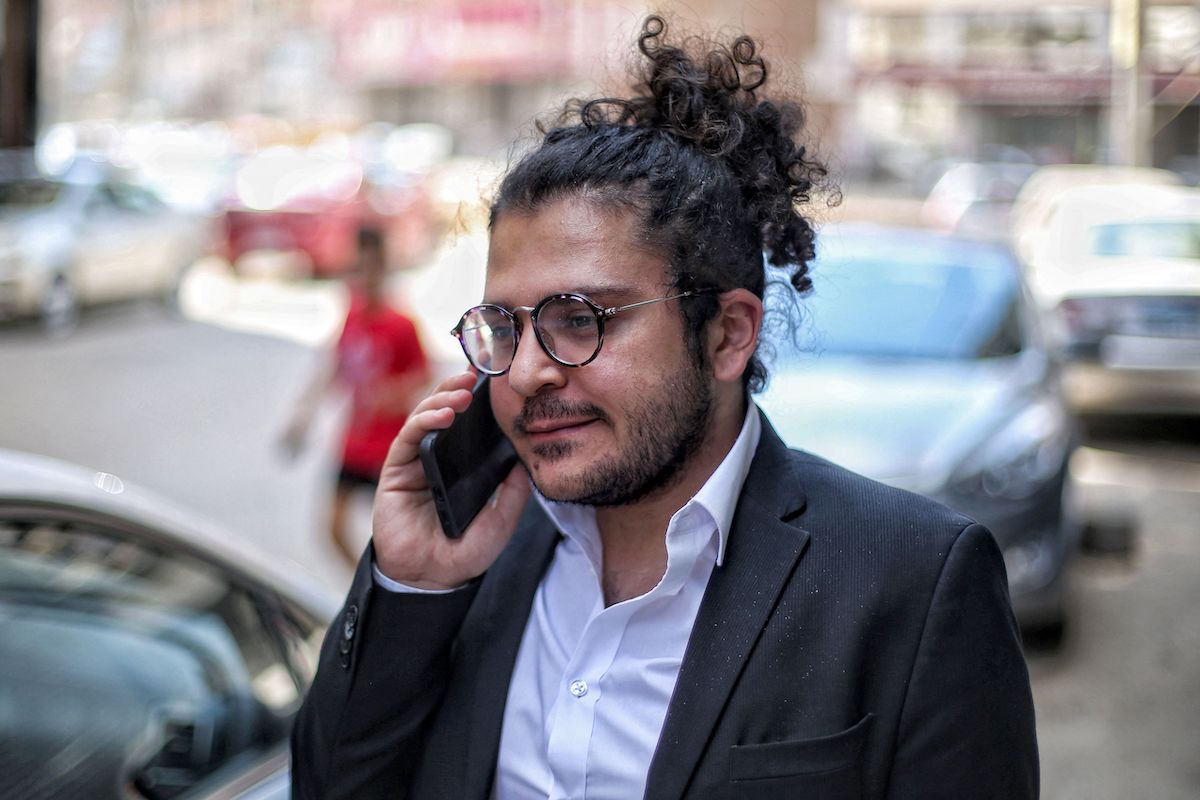Yesterday the court of Mansura in Egypt sentenced Patrick Zaki to three years in prison with a final sentence. The former student at the University of Bologna has already spent a year and 10 months in prison and must therefore spend another year and two months behind bars.
“We experienced yesterday’s sentence as a kind of zero point: all the efforts we’ve made over the past three years have been wiped out with a sponge wipe.” February 2020 when Patrick was arrested,” he explains Rolling Stone Italy Riccardo Noury, spokesman and activist for Amnesty International, who has followed Zaki’s story closely from the beginning. “We are overcoming this phase of consternation, at least at street level: yesterday there was a large demonstration in Bologna and more will be organized this week in various Italian cities.”
Unfortunately, according to Noury, the awareness of public opinion goes hand in hand with “a profound deficit in political attention to this matter, a deficit that has affected three different governments.” Yesterday, Giorgia Meloni explained publicly propose trust. Well: We ask you to move from this optimistic statement to a concrete result that could allow Patrick to avoid another 14 months in prison.”
One point Amnesty has emphasized in recent years is the granting of citizenship to Zaki, with the aim of giving the student greater legal guarantees and putting pressure on Egypt to secure his release. The government could achieve this outcome on the basis of a 1992 law that provides this opportunity for a foreign citizen “if he has rendered outstanding service to the country or if there is an exceptional interest of the state”. Granting citizenship to Zaki would therefore fall under the second hypothesis, provided that the Italian state has an “extraordinary interest” in ensuring the safety of students at one of its universities.
Parliament has taken some concrete steps in this direction: thus, in 2021, the Senate and the Chamber approved two applications for the granting of Italian citizenship to the then student (Zaki graduated from the University of Bologna on July 5 and discussed his thesis from far ). However, the final word rests with the government, which can autonomously decide which initiatives to take. Of course, citizenship would not be enough to guarantee a release, but it would increase Italy’s contractual strength at the negotiating table: the government would actually act in defense of one of its citizens, increasing pressure on Egypt and dropping allegations of meddling in the country internal affairs of another state. “It could have been a very useful solution to ensure Patrick had better protection. Today it remains an important issue, but there is little hope: even then, the government insisted that this path could have been counterproductive and that it would have been better to act with caution and prudence so as not to irritate the interlocutor even more. What did we get in the end? Nothing,” explains Noury.
The governments’ strategy on the Zaki issue has so far been implemented in secret and informally. “It’s the nature of diplomacy to take non-public action, and that’s fine: what matters is that something gets done. On our coasts, on the other hand, the opposite path is being taken: there is a lot of emphasis on the importance of human rights, but nothing changes in the face of the facts.” Noury indicates that the secrecy of the negotiations led to some sort of result: “It exists no doubt that Patrick’s release on December 8, 2021 was also the result of an institutional intervention, but from that moment there was immobility: everyone forgot about the accused Patrick, focusing exclusively on Patrick, who is on parole». “It was thought that everything was settled,” Noury continues, “that there was no longer any need to exert any pressure, and in the process they lost sight of the most important detail: Patrick’s charge in an emergency court and what it is.” It stands therefore no possibility of appeal. Anyone who understands the matter knows perfectly well that in Egypt “accused” means “convicted”. That’s why one can feel bitterness about yesterday’s sentence, and certainly not astonishment. That aspect had been in the air for months.”
Another instrument that our country may have at its disposal is the UN Convention against Torture, promulgated in 1984 and ratified by both Italy and Egypt in the following years: the torture what Zaki suffered at Cairo Airport in the hours following his arrest are now public knowledge and action on this front could lead to a resolution of the matter. “The convention provides for an internal redress mechanism for the signatory states,” explains Noury. “A state can sue another for committing acts of torture. At this point, a negotiation process begins, which can end with compensation work, i.e. the restoration of the facts that preceded the torture. In the case of Italy, therefore, compensation would be the release of Zaki. So far, however, this possibility has never been considered.
Patrick’s legal team is considering all the extremely narrow options to prevent Patrick’s detention from continuing: “At the moment there are two possible ways: the annulment of the process, which can only take place in the event of a procedural violation, and the pardon of the President, that is, one extrajudicial measure.”
For months, debate over the Zaki issue also focused on the big issue of Italy’s interests in Egypt, the first buyer of Italian-made weapons and a strategic country from an energy perspective. But how much do these interests weigh? According to Noury, “they have a 100% impact: for our country, Egypt represents a large market for the sale of arms and also a significant source of hydrocarbons, also given the need to diversify suppliers in order not to fuel the war.” the Russian invasion of Ukraine. And then we must not forget the migration issue, given the role that Egypt plays in the Libyan issue. In this context, human rights are unfortunately always and in any case the big lack.”

